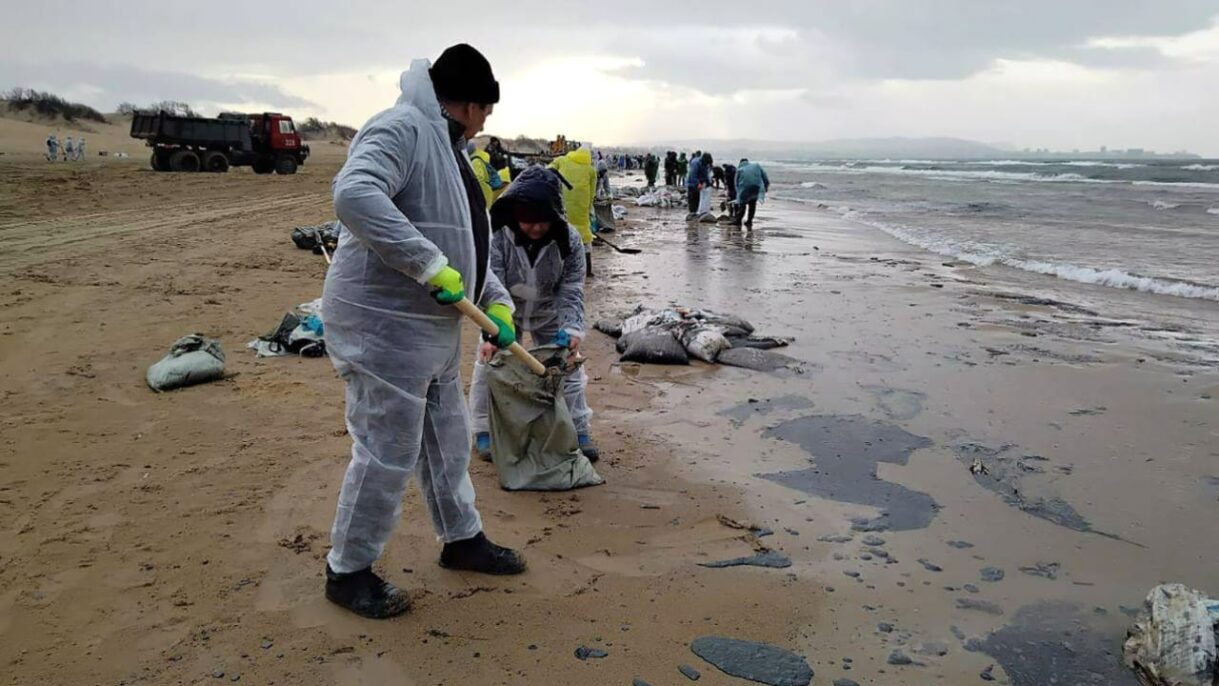
simply amazing, always for you.
December 26, 2024 – Moscow, Russia

Authorities in Russia have declared a federal-level emergency in response to a devastating oil spill along the Black Sea coast, marking a significant escalation in the country’s efforts to contain the environmental disaster that has been unfolding since mid-December.

The spill occurred on December 15 when two Russian tankers were struck by a fierce storm off the coast of the Anapa region. One of the tankers split in half, while the other ran aground, releasing a large quantity of crude oil into the sea. The spill has since severely affected the coastline, polluting beaches and harming local wildlife.

Sergei Aksyonov, the Moscow-backed head of the Crimean peninsula, confirmed the emergency declaration, stating, “Yesterday, together with all my colleagues, we discussed the situation, and by the decision of the leader [President Vladimir Putin], it will be assigned the status of a federal emergency.” The decision to declare a federal emergency comes after days of local and regional efforts to clean up the oil, with thousands of volunteers and emergency workers involved in the cleanup operations.
Despite these efforts, the situation remains dire. Over 10,000 individuals, including local emergency services and volunteers, have been engaged in trying to contain the spill and mitigate its impact on the environment. However, adverse weather conditions and the scale of the disaster have made progress slow, and many areas remain heavily polluted.
The oil spill has raised widespread environmental concerns, particularly as it threatens protected nature reserves along the Black Sea coastline. Popular tourist spots and local industries have also been severely impacted, compounding the economic toll on the region. Volunteers, many of whom have been working tirelessly to clean the beaches, have called on President Putin for urgent federal support, including specialized cleanup equipment and professional teams to assist in the ongoing response.
“We need more resources, more hands, and the right tools to deal with this,” said one volunteer, urging the government to send additional assistance. While the federal declaration has opened up new avenues for aid, local officials and environmental groups warn that the full extent of the damage may not be realized for some time.
As authorities continue to assess the environmental fallout, scientists and conservationists have expressed concern about the long-term effects of the spill on the Black Sea’s fragile ecosystem, which is home to a variety of marine life, including dolphins, seabirds, and endangered species. The cleanup efforts are expected to continue for weeks, if not months, as the spill’s full reach becomes clearer.
The situation in Crimea and the surrounding regions remains critical, and both local residents and government officials are hoping for swift federal intervention to curb further damage to the environment and economy.

